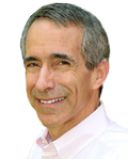
Health
Money Will Buy You Health Care—It Won't Buy You Health
New definitions of health are needed — now.
Posted February 21, 2013
New Definitions of Health

What does it mean to be "healthy?"
The media equation of health with health care is sad. It makes people think that if they have enough money and “great” health insurance, that when they become sick everything will be fine.
That might prove true in the 23rd century. People might live on Star Trek planets and instantly update their tricorders. Yet these days when people get sick today they quickly discover the severe limitations of medical treatment – even at limitless cost. The longest lived populations – like Suffolk County’s Asian American women, living into their mid-nineties – achieve their survival through lifestyle, not “superior” medical treatment.
But try telling most folks the facts. We can’t see the forest, often the trees. Partly that’s because of different, generally unspoken definitions of health.
Common Definitions of Health
Corporate Definition – We decreased health care outlays this year through increased co-pays.
Internist Definition – your LDL cholesterol is great. The blood pressure is great. The numbers look good.
Common Patient Definition – I don’t have any symptoms that bother me, and my doctor says my numbers are great.
World Health Organization definition – the complete physical, mental, and social well-being of a population.
From a societal, economic, political or usefulness standard, we’re much better off starting with the WHO definition.
But what is population well-being? Fortunately, there are many objective and subjective metrics. They include longevity and incidence of cancer; rates of depression and suicide; measures of social connectiveness and community cohesion, ranging from urban murder rates to the active use of public parks.
And then there are individual definitions of health – of feeling good and whole in many aspects of one’s life.
Different Definitions
Better definitions of health should contribute to people’s overall sense of energy, capacity, productivity, and wholeness.
So let’s look at a few:
Physical health – how your body feels.
Mental Health – how well your mind feels.
Social Health – How connected and engaged by friends, colleagues, community and society one feels.
Spiritual Health – Connections to something larger than oneself and one’s immediate family, and the meaning, connectivity and sense of wholeness that provides.
The utility of looking at these different forms of health is that they all help each other. All of them:
Physical health – physical activity can increase lifespan, prevent heart attack and cancer, decrease erectile dysfunction and lower blood pressure. It can also improve mood, prevent or treat depression, allay anxiety. When done socially it can deeply connect individuals – as occurs in team play and sports.
Mental Health – Cognitive approaches to the world – looking at the world in terms of solutions as opposed to problems – can markedly improve depression and anxiety. But such approaches can improve physical health, beyond a sense of well-being. When people feel mentally healthy their physical health is enhanced – as is their capacity for connection and meaning.
Social Health – Since Berkman and Syme’s work of 1979 in Alameda County, California, it’s been clear than more social connectedness means less depression, less heart attacks, less strokes.
Spiritual Health – the work of Andrew Newberg and others point to the usefulness of spirituality in people’s physical and mental health. Connecting with religious organizations generally makes people feel more whole, less depressed, and provides many with feelings of great possibility.
Translation – all these different aspects of individual health are synergistic. Improve one – you improve them all.
So why are they so infrequently used?
Models of Health
Standard Medical Model – the body is a machine. It’s a living, wondrous machine, but a machine. If the numbers are right things are fine. If they’re not, there are drugs and devices – and a future of new parts – to replace the old ones.
Future Health Model – the body is a living, breathing, thinking information system that constantly regenerates itself. Much of it is gone in three or four weeks. It updates and learns in order to survive, never stopping learning and remodeling until death. The more it’s used the way it’s built the more productive, functional, creative, and meaningful one’s life.
The standard medical model is not just outmoded – it’s wrong. Humans are more than the sum of their parts. Machines are dead. People are not.
And people learn. They must learn – mostly unconsciously – just to survive. If the immune system did not – without our conscious knowledge – constantly remake and recreate itself, most of us would die from the endless legions of constantly mutating bugs that exist absolutely everywhere.
But we don’t die. We don’t because immunity uses somatic hypermutation – forced evolution – to continually and continuously remake its forces.
And that’s what definitions of health must recognize – the velocity of biology, the necessity of change. The environment always changes. So must we all. Otherwise we will not exist.
Looking at health as physical, mental, social and spiritual well-being fits this evolutionary, regenerative model of health. Humans are information systems, intricate and vast, endlessly shifting and recreating. We want to direct these systems. We want to control them. We want them to work towards the goals we wish for ourselves.
Goals that include connectedness and meaning, spiritual comfort and mental pleasure. The power of pleasure may prove greater than one common definition of health – the absence of disease.
Health is a helluva lot more than not feeling sick – especially when you define it well.



